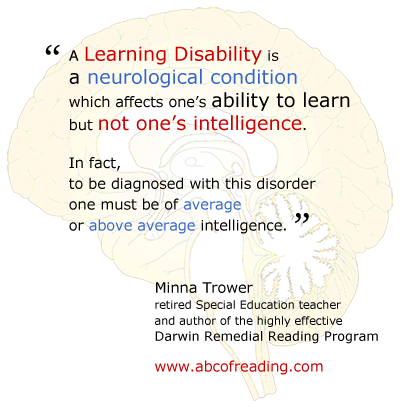There are several reasons for learning problems. For instance, a child could have Learning Disabilities, be intellectually challenged or have a developmental lag. For information on lags, refer to http://www.parentcenterhub.org/repository/dd/; though some of the information on this site is directed at Americans, it does provide a clear overview of this condition.
The focus of this posting is on Learning Disabilities.

A major problem with Learning Disabilities involves the neural transmission of information from the sense organs such as the ears and eyes to the brain. It should be noted that the sense organs function well – that is even if corrective devices such as eye glasses are needed.
The following comparison will help you understand this condition. An impairment with the auditory system can be likened to a faulty telephone line where the lack of clarity makes it difficult to understand what is being said. This in turn affects one’s ability to respond appropriately. The same thing happens with the brain. Here faulty neural transmissions affect its ability to receive clear, precise information. As a result, individuals with this impairment tend to have problems with various aspects of language – e.g. language development, articulation, reading, writing and presenting information in a coherent manner.
The next posting will present the symptoms of Learning Disabilities.

